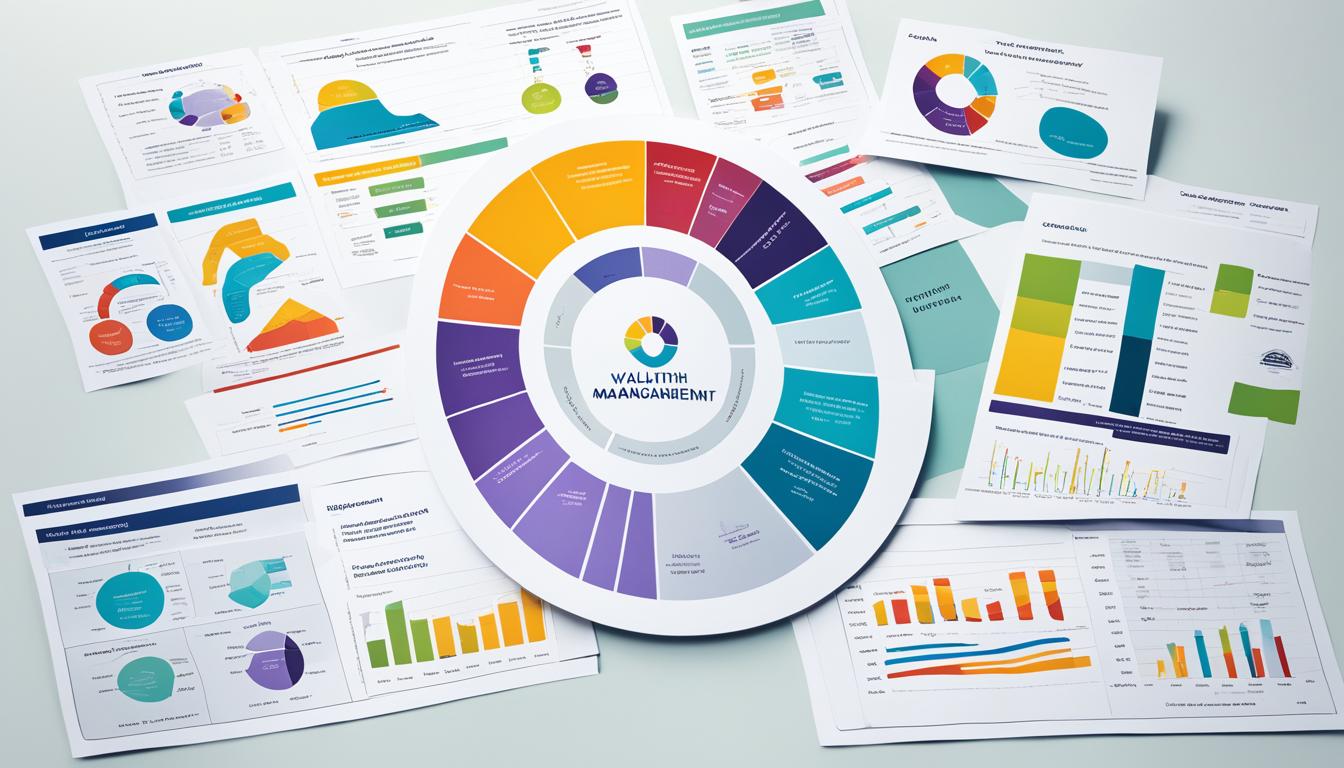Valuing a wealth management firm is not a one-size-fits-all process. It requires a comprehensive evaluation that takes into account various factors specific to the firm being valued. Gone are the days when a simple rule of thumb or a fixed percentage of assets under management (AUM) could determine the worth of a company. In this guide, we will explore the key considerations for valuing wealth management firms and uncover the need for a thorough analysis beyond generic valuation methods.
When evaluating a wealth management practice, it is crucial to understand the industry landscape and the specific transactional purpose. The evolution of the wealth management industry has been shaped by regulatory reforms and changing market dynamics over the years. From the emergence of registered investment advisors (RIAs) to the focus on wealth distribution and the call for a sanctioned fiduciary standard, the industry has undergone significant transformations. This historical context is essential when determining the worth of a wealth management company.
There are various valuation methods available for assessing the worth of a wealth management firm. While generic approaches like market capitalization and book value can provide some insights, they may not capture the true value of the firm. Other methods, such as the earnings multiplier and discounted cash flow (DCF) analysis, offer a more comprehensive understanding by considering future cash flows and adjusting for market conditions. The choice of valuation method should align with the specific context and purpose of the valuation.
Working with a financial advisor can have a significant impact on wealth accumulation. Research shows that individuals who seek professional guidance achieve higher levels of wealth accumulation compared to those who don’t. The value of financial advice extends to individuals in all economic statuses, providing personalized financial planning and peace of mind.
While beating the market consistently is a challenge, financial advisors can help clients set realistic expectations and create personalized investment strategies. Instead of solely pursuing market-beating returns, the focus should be on achieving satisfactory results and long-term financial security.
Working with a wealth manager not only brings tangible benefits but also intangible ones. Increased confidence, peace of mind, and time saved from managing finances are some of the intangible benefits clients can enjoy. These intangibles contribute significantly to the overall value and well-being of clients.
When considering working with a financial advisor, it is essential to understand the cost structure and evaluate the potential return on investment. Fee structures can vary, including a percentage of assets under management (AUM), hourly rates, or fixed fees. By considering these factors, individuals can make informed decisions and navigate the complex process of valuing a wealth management firm.
Key Takeaways:
- Valuing a wealth management firm requires a comprehensive evaluation beyond generic methods.
- Understanding the industry’s evolution and dynamics is crucial when determining a firm’s worth.
- Various valuation methods, such as the earnings multiplier and discounted cash flow analysis, provide a comprehensive understanding.
- Working with a financial advisor can significantly impact wealth accumulation and provide intangible benefits.
- Beating the market consistently is challenging, but financial advisors can guide clients towards achieving their financial goals.
The Evolution of the Wealth Management Industry
The wealth management industry has undergone tremendous changes throughout its history, largely influenced by regulatory reforms and shifting market dynamics. These transformations have significantly shaped the way wealth management firms operate and serve their clients.
After World War II, the industry experienced a notable shift as securities regulations were introduced. Trading firms were forced to adopt new models, giving rise to dedicated wealth management practices. This marked a pivotal moment in the evolution of the industry, setting the stage for future advancements.
However, it was in the 1980s that the growth of registered investment advisors (RIAs) gained substantial momentum. During this period, new fee-based concepts emerged, revolutionizing the way wealth management services were delivered. Additionally, there was a notable shift towards fiduciary standards, solidifying the role of financial advisors as fiduciaries that prioritize the best interests of their clients.
Today, the wealth management industry has become increasingly specialized, catering to the unique needs and preferences of different client segments. There is now a heightened focus on wealth distribution and the advocacy for a sanctioned fiduciary standard across the industry.
Understanding the history and dynamics of the wealth management industry is crucial when it comes to valuing a wealth management firm. By keeping abreast of regulatory reforms and trends shaping the industry, stakeholders can make informed decisions about the worth and potential of these firms.
Influence of Regulatory Reforms on the Wealth Management Industry
Regulatory reforms have played a critical role in shaping the wealth management industry. They have introduced new standards, ethical guidelines, and compliance measures that have enhanced investor protection and instilled trust in financial institutions.
| Year | Regulatory Reforms |
|---|---|
| 1929 | Securities Act of 1933 |
| 1940 | Investment Advisers Act of 1940 |
| 1974 | Employee Retirement Income Security Act (ERISA) |
| 2010 | Dodd-Frank Wall Street Reform and Consumer Protection Act |
- The Securities Act of 1933 introduced comprehensive disclosure requirements for companies offering securities to the public, promoting transparency in the financial markets.
- The Investment Advisers Act of 1940 imposed registration and reporting obligations on investment advisors, ensuring that they meet certain ethical and professional standards.
- The Employee Retirement Income Security Act (ERISA) of 1974 provided regulations for employer-sponsored retirement plans, reinforcing the importance of fiduciary duties.
- The Dodd-Frank Wall Street Reform and Consumer Protection Act, enacted in 2010 in response to the global financial crisis, introduced stringent regulations to enhance financial stability and protect consumers.
These regulatory reforms have had a profound impact on the operations, disclosure requirements, and compliance standards of wealth management firms. Adhering to these regulations is crucial for ensuring the ethical and responsible management of clients’ wealth.
Valuation Methods for Wealth Management Firms
When it comes to determining the worth of a wealth management firm, there are several valuation methods that can be employed. While generic approaches like market capitalization and book value can offer some insights, they may not capture the true value of the firm. Therefore, it is crucial to explore other more comprehensive valuation techniques that consider various factors and future projections.
One such method is the earnings multiplier approach, which takes into account a firm’s earnings and applies a multiple to gauge its value. This method provides a broader understanding of the firm’s potential profitability and growth prospects. Additionally, the discounted cash flow (DCF) analysis method is useful for estimating a firm’s intrinsic value by taking into consideration the present value of its expected future cash flows.
It is important to note that each valuation method has its strengths and limitations. The choice of method should depend on the specific context and purpose of the valuation. Some other valuation techniques used in the wealth management industry include the price to earnings (P/E) ratio, the price to book (P/B) ratio, and comparative analysis with similar firms in the market.
Ultimately, a comprehensive valuation of a wealth management firm requires a combination of methods and a thorough analysis of the firm’s financials, market conditions, and competitive landscape. Financial professionals and experts with experience in valuing wealth management firms can provide valuable insights and guidance throughout the valuation process.
The Impact of Financial Advisors on Wealth Accumulation
Research has shown that working with a financial advisor can have a significant impact on wealth accumulation. Studies conducted by the International Longevity Centre-UK and CIRANO have demonstrated that individuals who received financial advice achieved higher levels of wealth accumulation compared to those who did not seek professional guidance. The value of financial advice extends beyond affluent individuals, as even individuals in lower economic statuses experienced an increase in wealth after consulting with advisors. These findings highlight the benefits of financial planning and the potential ROI of working with a knowledgeable advisor.
One study conducted by the International Longevity Centre-UK found that individuals who received financial advice had, on average, 17% higher net financial assets than those who did not seek professional guidance. This demonstrates the value of working with a financial advisor in terms of wealth accumulation. By providing guidance on investment strategies, retirement planning, and risk management, financial advisors can help individuals make informed decisions that contribute to long-term financial success.
In a separate study by CIRANO, it was found that individuals who received financial advice also exhibited greater financial literacy and confidence in their financial decisions. This suggests that working with a financial advisor not only improves wealth accumulation but also empowers individuals to make more informed choices about their money. The knowledge and guidance provided by financial advisors can help individuals navigate complex financial situations and make the most of their resources.
Furthermore, the impact of financial advisors on wealth accumulation is not limited to affluent individuals. In fact, research has shown that even individuals in lower income brackets can benefit from working with an advisor. A study by Vanguard found that individuals who received financial advice for a period of six years increased their assets by an average of 1.5% more per year compared to those who did not seek professional guidance. This demonstrates that financial advice can play a crucial role in helping individuals from all socioeconomic backgrounds build wealth over time.
Working with a financial advisor provides individuals with personalized financial planning and guidance tailored to their unique circumstances and goals. By taking into account factors such as risk tolerance, investment objectives, and time horizon, financial advisors can develop customized strategies that align with their clients’ needs. This personalized approach improves the likelihood of achieving financial goals and maximizing wealth accumulation.

The Value of Financial Advice
Working with a financial advisor offers numerous benefits that contribute to wealth accumulation:
- Professional expertise: Financial advisors possess specialized knowledge and experience in various aspects of finance, enabling them to provide valuable insights and guidance.
- Investment management: Advisors can help individuals develop an investment strategy that aligns with their risk tolerance and financial goals, optimizing investment performance for wealth accumulation.
- Goal-oriented planning: Financial advisors assist individuals in setting clear financial goals and developing a comprehensive plan to achieve them, ensuring a focus on long-term wealth accumulation.
- Risk management: Advisors help clients navigate market volatility and develop risk management strategies to protect wealth and avoid potential losses.
The Return on Investment (ROI) of Working with a Financial Advisor
While the value of working with a financial advisor extends beyond monetary gains, the potential return on investment can be substantial. A study by Vanguard revealed that individuals who partner with a financial advisor have the potential to earn approximately 3% higher returns on their investments over the long term compared to those who manage their finances independently. The expertise and personalized guidance provided by financial advisors can contribute to improved investment performance and ultimately increase wealth accumulation.
With the clear benefits and potential ROI of working with a financial advisor, individuals can enhance their financial well-being and increase their chances of achieving long-term financial security. Whether it’s for retirement planning, investment management, or comprehensive financial advice, partnering with a knowledgeable advisor can have a significant positive impact on wealth accumulation.
The Challenge of Beating the Market
Beating the market consistently is a daunting task faced by both individual investors and professional fund managers. Numerous studies, including the S&P Dow Jones Indices’ SPIVA U.S. Scorecard, reveal that a significant majority of actively managed funds struggle to outperform their benchmarks over the long term. This underscores the inherent challenges in achieving consistent investment performance that exceeds market averages.
However, financial advisors play a pivotal role in helping investors navigate these challenges and optimize their investment strategies. They provide valuable guidance by setting realistic expectations, helping clients understand the complexities of the market, and creating personalized investment plans that align with individual goals and risk tolerance. By leveraging their expertise and experience, financial advisors empower investors to make informed decisions and maximize their investment potential.
Financial advisors assist investors in overcoming the challenges of market outperformance by offering tailored strategies and educated insights that consider the intricacies of the financial landscape.
While market-beating returns may be the primary objective for many investors, it is important to recognize that investment success should be measured holistically. Rather than solely focusing on outperforming the market, the emphasis should be on achieving satisfactory results and long-term financial security. Financial advisors help investors strike a balance between risk and reward, ensuring that their investment strategies align with their unique circumstances and objectives.
The unpredictable nature of the market and the ever-changing market conditions make consistent market outperformance a challenging proposition. However, with the guidance of a financial advisor, investors can navigate these challenges with confidence, knowing that they have a knowledgeable partner by their side.

Investment Performance Challenges
Investment performance is influenced by several factors that pose challenges to market outperformance:
- Economic fluctuations and market volatility
- Unpredictable geopolitical events
- Industry-specific risks
- Timing and duration of market cycles
By acknowledging these challenges, investors can approach their investment strategies with realistic expectations and seek the guidance of a financial advisor to navigate the complexities effectively. A well-defined investment plan, tailored to individual goals and risk appetite, can provide a framework for long-term success in the face of market challenges.
The Intangible Benefits of Working with Wealth Managers
While the tangible return on investment (ROI) of working with a wealth manager is measurable, such as higher wealth accumulation, there are intangible benefits that are equally valuable. These include increased confidence, peace of mind, and the assurance that one is making informed decisions with their money. Financial advisors can also save clients time and alleviate the stress of managing finances. The intangible benefits of working with wealth managers cannot be quantified precisely, but they contribute significantly to the overall value and well-being of clients.

The Cost of Working with Wealth Managers
The cost of working with a financial advisor is an important consideration when seeking wealth management services. The fee structure employed by advisors can vary, and it’s crucial for clients to understand these costs upfront to make informed decisions about hiring a wealth manager.
One common fee structure is based on a percentage of assets under management (AUM). This means that clients pay a certain percentage of their total portfolio value to the advisor for managing their investments. The advantage of this structure is that the fee is directly tied to the client’s wealth and may incentivize the advisor to grow the client’s portfolio. However, it’s important for clients to consider the potential impact of these fees on their overall investment returns.
Alternatively, advisors may charge hourly rates for their services. This structure is particularly suitable for clients who require specific financial planning advice or assistance with certain tasks, such as tax planning or estate planning. Hourly rates allow clients to pay for the advisor’s time and expertise on an as-needed basis, rather than a set fee tied to assets under management.
Some advisors may also offer fixed fees for their wealth management services. This fee structure involves a set amount paid annually or quarterly, regardless of the client’s portfolio size. Fixed fees can provide transparency and predictability for clients, as they know exactly how much they will be paying for the advisor’s services.
It’s important for clients to evaluate the potential return on investment (ROI) when considering the cost of working with a financial advisor. While advisory fees are an expense, they can potentially provide substantial value in terms of investment management, financial planning, and overall wealth management strategies. Clients should consider their individual financial goals, the complexity of their financial situation, and the services offered by the advisor when assessing the potential ROI.
Key Takeaways:
- The cost of working with a financial advisor can vary depending on the fee structure employed.
- Options include a percentage of assets under management (AUM), hourly rates, or fixed fees.
- Clients should consider the potential impact of these fees on their overall investment returns.
- Evaluating the potential return on investment (ROI) is essential when considering the cost of working with a financial advisor.

Conclusion
In conclusion, valuing a wealth management firm requires a comprehensive approach that takes into account context, industry dynamics, and individual circumstances. Generic valuation methods are insufficient for capturing the true worth of a firm. Working with a financial advisor can provide multiple benefits, including higher wealth accumulation and intangible advantages such as peace of mind and personalized financial planning.
Although market outperformance can be challenging, a skilled wealth manager can guide clients towards achieving their financial goals and long-term security. It is essential to understand the cost structure and carefully evaluate the potential return on investment (ROI) when considering working with a wealth manager.
By considering these factors and making informed decisions, individuals can navigate the complex process of valuing a wealth management firm, ensuring a comprehensive evaluation and maximizing their financial outcomes.




No comments! Be the first commenter?